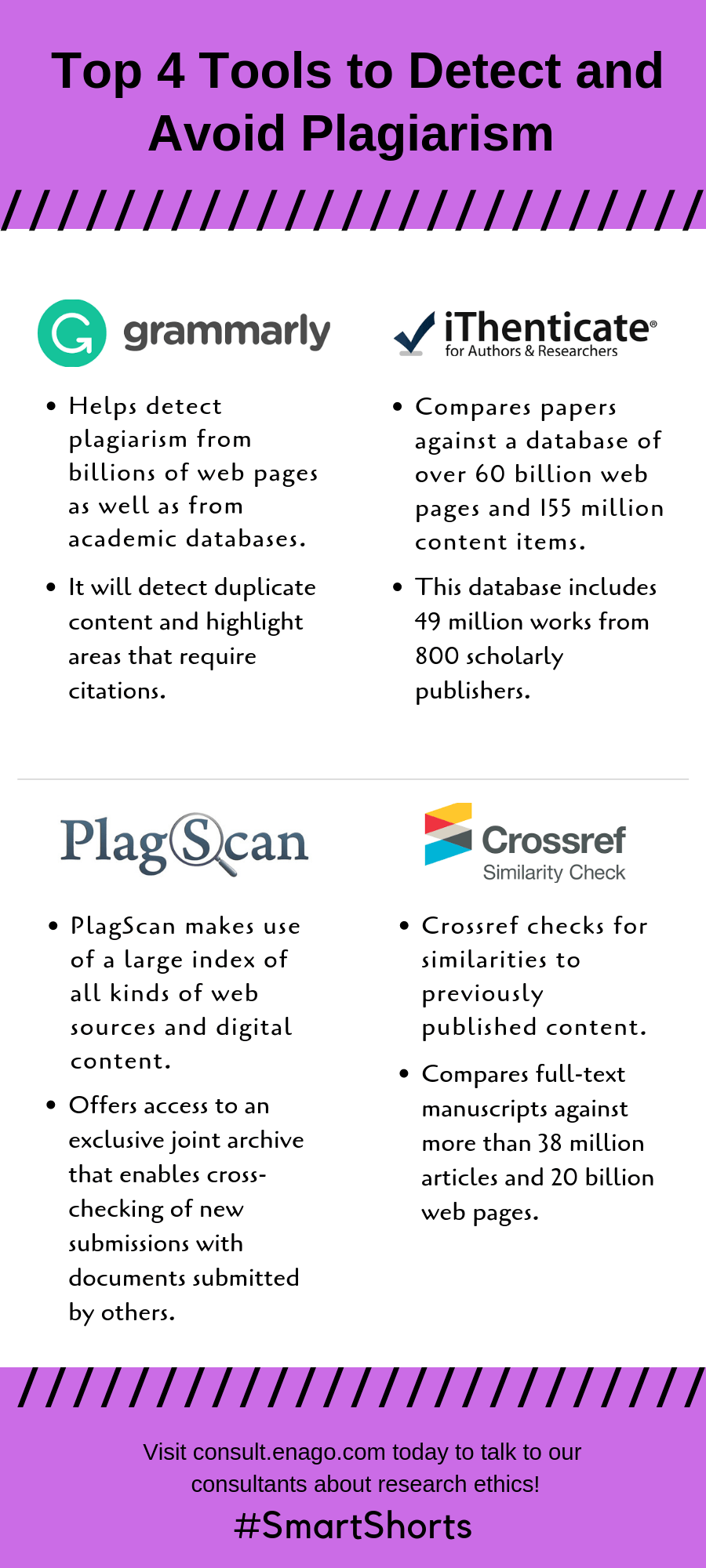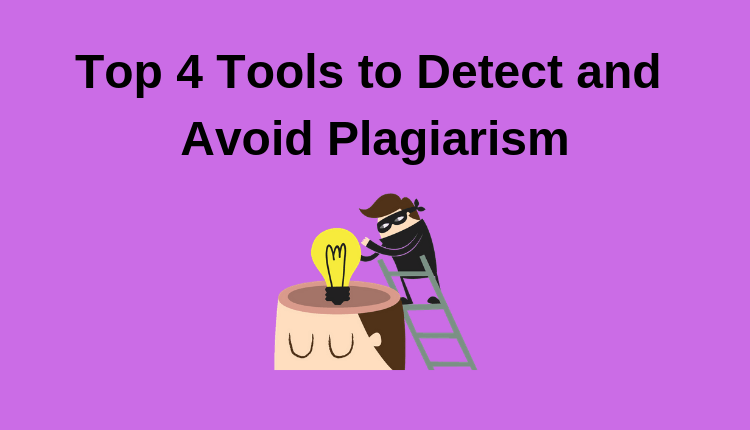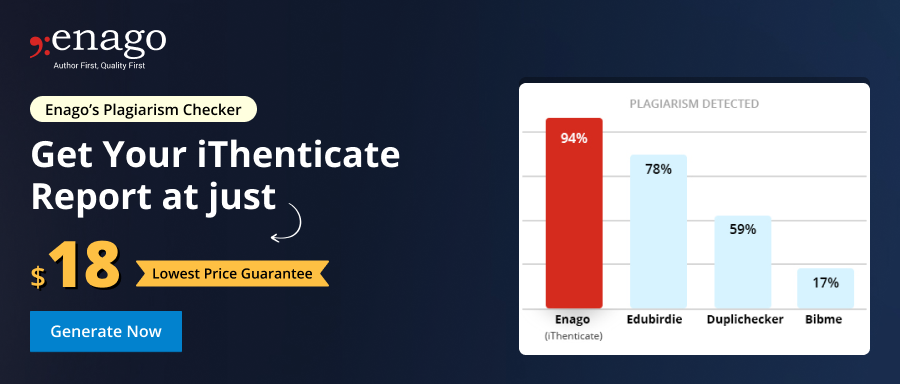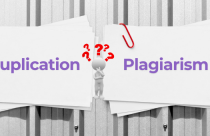Top 4 Tools to Detect and Avoid Plagiarism
Plagiarism is one of the serious forms of scientific misconduct. This often leads to severe consequences including the damage of one’s credibility and reputation. Being aware of plagiarism checker tools would help you detect plagiarism in your manuscript and uphold academic integrity.
Multiple free plagiarism checkers are available online which help authors understand if their text is plagiarized or not. These tools generally analyze the text and provide a similarity score and highlight text that is suspected to be plagiarized. The authors can then rework on their material to make it plagiarism-free.
4 Tools to Detect and Avoid Plagiarism

Grammarly Plagiarism Checker
Grammarly plagiarism checker scans your text against academic databases and over 16 billion web pages, identifying both direct and indirect matches. Grammarly provides detailed plagiarism insights alongside suggestions for improving overall clarity and style, making it a comprehensive tool for writers at any level.
iThenticate
iThenticate is tailored for high-level professional and scholarly work. This plagiarism detection tool compares content against a vast repository, including scholarly articles, technical reports, and web pages, to detect potential overlaps. It offers a detailed similarity report with precise source references, helping authors identify and address problematic areas before submission. iThenticate is particularly favored by publishers for ensuring the originality of manuscripts, making it a critical resource for researchers seeking to uphold ethical standards in publishing.
PlagScans
PlagScan is a plagiarism detection software that comes with a user-friendly interface. This allows for easy document uploads and comparisons against a comprehensive database of resources. It also provides detailed reports highlight potential matches and provide insights into the severity of the detected similarities. One of its standout features is its integration with learning management systems (LMS), making it a convenient choice for educators and students. Most importantly, PlagScan also offers customizable settings to control data storage and sharing thereby upholding data privacy.
Crossref Similarity Check
Crossref Similarity Check, powered by iThenticate, is specifically designed for publishers to ensure the originality of submitted manuscripts. This service is integrated with Crossref metadata, allowing journals to detect overlaps with previously published content, including subscription-only articles and other proprietary resources. The tool supports the scholarly publishing community by helping journal editors identify potential cases of duplicate publication or plagiarism early in the submission process. Its detailed reports enable editors to take informed decisions while maintaining the integrity of the publication process. Crossref Similarity Check is an essential tool for publishers aiming to uphold high ethical standards and foster trust within the research community.
Apart from the above mentioned tools, there are various other useful plagiarism checkers including Turnitin Plagiarism checker, Quill bot, and Scribbr Plagiarism checker. Proof-reading your manuscripts effectively before submissions would help you avoid any unintentional scientific misconduct. This is will eventually help you establish your credibility and reputation in the constantly evolving academic publishing landscape.
If interested to learn more about plagiarism and how to avoid it, you can access similar articles here.











